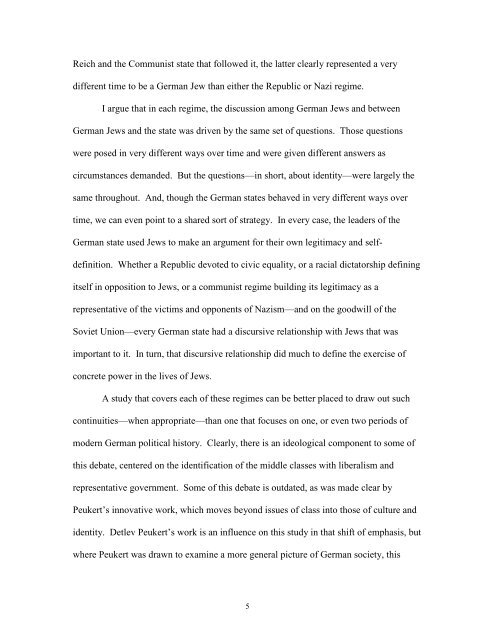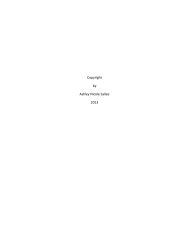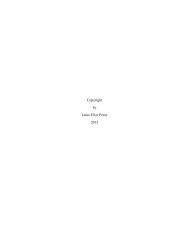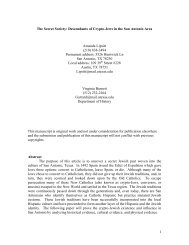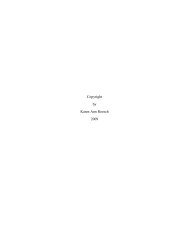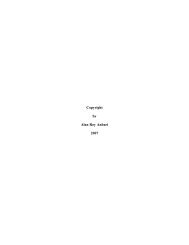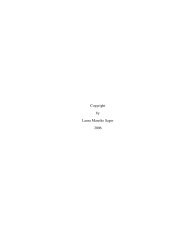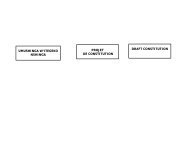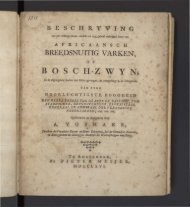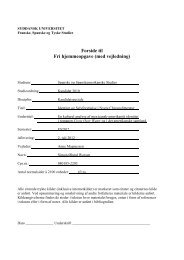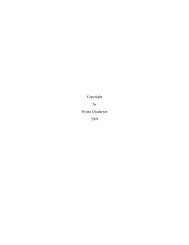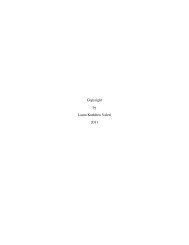Jews in Leipzig - The University of Texas at Austin
Jews in Leipzig - The University of Texas at Austin
Jews in Leipzig - The University of Texas at Austin
Create successful ePaper yourself
Turn your PDF publications into a flip-book with our unique Google optimized e-Paper software.
Reich and the Communist st<strong>at</strong>e th<strong>at</strong> followed it, the l<strong>at</strong>ter clearly represented a very<br />
different time to be a German Jew than either the Republic or Nazi regime.<br />
I argue th<strong>at</strong> <strong>in</strong> each regime, the discussion among German <strong>Jews</strong> and between<br />
German <strong>Jews</strong> and the st<strong>at</strong>e was driven by the same set <strong>of</strong> questions. Those questions<br />
were posed <strong>in</strong> very different ways over time and were given different answers as<br />
circumstances demanded. But the questions—<strong>in</strong> short, about identity—were largely the<br />
same throughout. And, though the German st<strong>at</strong>es behaved <strong>in</strong> very different ways over<br />
time, we can even po<strong>in</strong>t to a shared sort <strong>of</strong> str<strong>at</strong>egy. In every case, the leaders <strong>of</strong> the<br />
German st<strong>at</strong>e used <strong>Jews</strong> to make an argument for their own legitimacy and self-<br />
def<strong>in</strong>ition. Whether a Republic devoted to civic equality, or a racial dict<strong>at</strong>orship def<strong>in</strong><strong>in</strong>g<br />
itself <strong>in</strong> opposition to <strong>Jews</strong>, or a communist regime build<strong>in</strong>g its legitimacy as a<br />
represent<strong>at</strong>ive <strong>of</strong> the victims and opponents <strong>of</strong> Nazism—and on the goodwill <strong>of</strong> the<br />
Soviet Union—every German st<strong>at</strong>e had a discursive rel<strong>at</strong>ionship with <strong>Jews</strong> th<strong>at</strong> was<br />
important to it. In turn, th<strong>at</strong> discursive rel<strong>at</strong>ionship did much to def<strong>in</strong>e the exercise <strong>of</strong><br />
concrete power <strong>in</strong> the lives <strong>of</strong> <strong>Jews</strong>.<br />
A study th<strong>at</strong> covers each <strong>of</strong> these regimes can be better placed to draw out such<br />
cont<strong>in</strong>uities—when appropri<strong>at</strong>e—than one th<strong>at</strong> focuses on one, or even two periods <strong>of</strong><br />
modern German political history. Clearly, there is an ideological component to some <strong>of</strong><br />
this deb<strong>at</strong>e, centered on the identific<strong>at</strong>ion <strong>of</strong> the middle classes with liberalism and<br />
represent<strong>at</strong>ive government. Some <strong>of</strong> this deb<strong>at</strong>e is outd<strong>at</strong>ed, as was made clear by<br />
Peukert’s <strong>in</strong>nov<strong>at</strong>ive work, which moves beyond issues <strong>of</strong> class <strong>in</strong>to those <strong>of</strong> culture and<br />
identity. Detlev Peukert’s work is an <strong>in</strong>fluence on this study <strong>in</strong> th<strong>at</strong> shift <strong>of</strong> emphasis, but<br />
where Peukert was drawn to exam<strong>in</strong>e a more general picture <strong>of</strong> German society, this<br />
5


